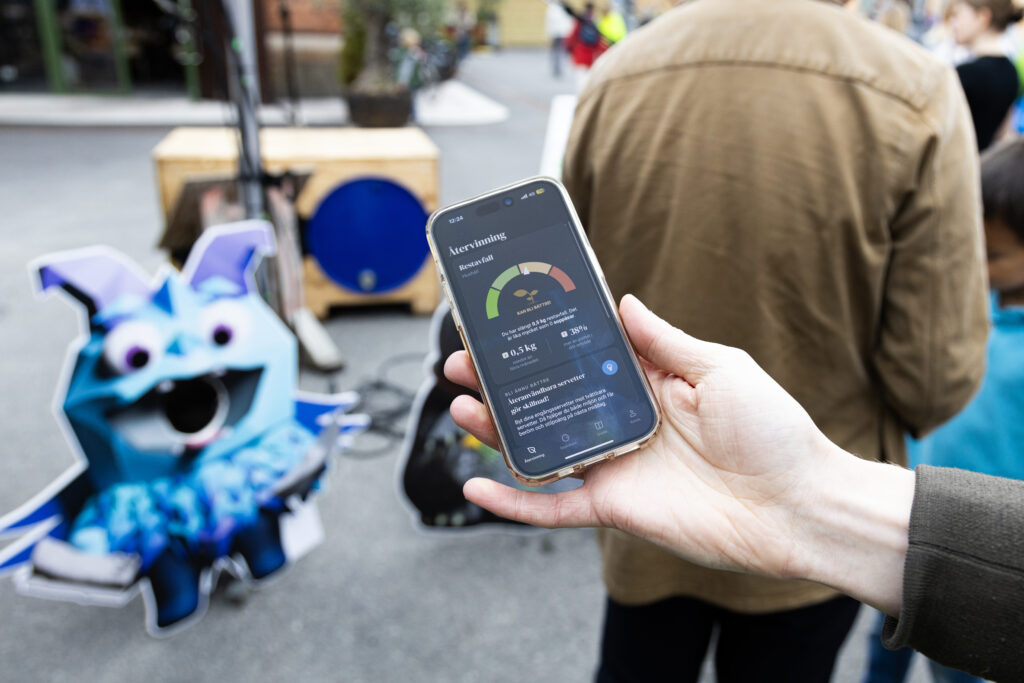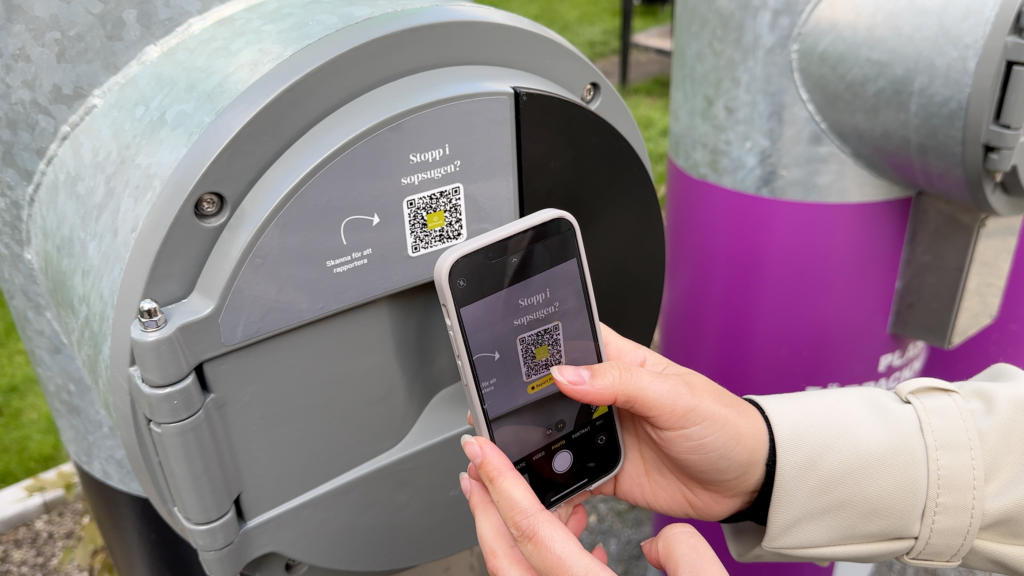Groundbreaking research project in waste management scales up
in Stockholm Royal Seaport
Reduce, Reuse, Recycle – ReFlow expansion
The Vinnova project “Reduce, Reuse, Recycle” aims to fundamentally change waste management by implementing a new IoT-based infrastructure. This infrastructure integrates recycling, reusing, and the sharing economy across an entire city district. The project is also unique in size, and it focuses on behavioural science research. Envac is one of the collaborators in the pioneering research project initiated by Stockholm Vatten och Avfall, Sweden’s leading water and waste company. The project is taking place in Stockholm Royal Seaport. It is being conducted in collaboration with KTH Royal Institute of Technology in Stockholm, the University of Agder, and several local property owners.
Many cities face several challenges with an increasing global trend of growing waste volumes, especially in neighbourhoods with multi-residential buildings. Among other things, making waste sorting more efficient, reducing the total amount of waste and increasing food and plastic waste sorting is part of the initiative. This project is an important step for Stockholm to develop new methods to meet the goals in its waste plan.
“With this central project, we hope to strongly contribute to securing the district’s high sustainability goals. By digitising and making waste management available to residents, we can get new statistics on use, error reports, amounts of waste and recycling for the district and get a basis for where we need to put our resources forward to reach our goals.”
Lars-Olov Andersson, Stockholm Vatten och Avfall

IoT joins the waste collection solution in Stockholm Royal Seaport
A central part of the project is the automatic waste collection, upgraded with Internet-of-Things (IoT) technology, including in the Envac ReFlow digital solution. This technology optimises and facilitates interactions between residents, property companies, waste infrastructure, and the municipality. This technology is expected to improve the infrastructure and change the way residents perceive and engage in waste management in the district.
Residents in Stockholm Royal Seaport will benefit from the project’s progress through a more intelligent waste system with user-friendly tools to, among other things, see the status of collection, statistics on use, report any stops, customised smart and simple tips that make a difference in everyday life. These tools aim to give residents a deeper understanding of sorting and how they can contribute to the city’s sustainability goals.
The project aims to explore how digital solutions can promote better sorting and thereby contribute to a simpler and more sustainable everyday life for the residents of Stockholm Royal Seaport. The project goals include increased sorting, reduced waste, fewer operational disruptions and increased customer satisfaction.
“With the project, we are setting a new standard in the waste sector, which is being digitised. This facilitates sorting in the district and contributes to the sustainability goals by linking citizens with their waste systems to reduce thresholds and inspire a more sustainable everyday life.” David Enarsson, Project Manager, LocalLife/Envac ReFlow

Increased sorting rate of 48%
Over the past two years, Hornslandet neighbourhood has conducted tests that yielded positive results. One of the significant findings from these tests is that service cases for waste inlets connected to the automatic collection have been reduced by 55%. This is because users can now report stops/errors, which are then resolved by the system. Additionally, the initial tests have shown a 48% increase in the garbage sorting rate in the collection system and a 170% increase in plastic recycling. Residents have also reported a change in their perception of waste management, from being seen as an individual burden to being viewed as a valuable and shared activity that contributes to more sustainable living.
“The project is of groundbreaking scale, design, and approach. We are exploring new frontiers to build new knowledge in waste-related behaviour. As a result, the project has received significant attention within the academic community.” This is how Henrik Siepelmeyer, a PhD student at the University of Agder and KTH, described his research in the project.
More information about the project:
Lars-Olov Andersson, Stockholm Vatten och Avfall, lars-olov.andersson@svoa.se
David Enarsson, LocalLife/Envac ReFlow david@envacreflow.com

